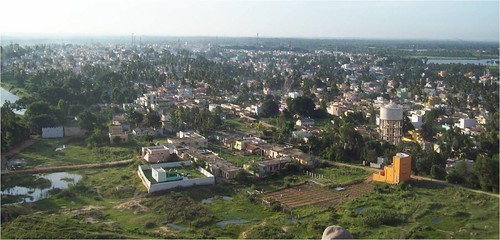Governance
Rights of adivasis over forest lands diminishes; their consent no longer mandatory for all development projects taken up on forest land - Roundup of the week’s news (February 11-17, 2013)
Posted on 18 Feb, 2013 11:18 PMAdivasis' rights over forest lands diminishes
Assessing the land use change and its impact on water resources: A study on the Mula and Mutha rivers catchment area in Pune
Posted on 17 Feb, 2013 09:11 PMLand use changes hydrologic system and have potentially large impacts on water resources. An assessment in an area with seasonally limited water availability and which is subject to rapid socio- economic development and population growth will provide an exemplary view on the local impacts of major recent developments in India. In this backdrop this paper analyzes past land use changes between 1989 and 2009 and their impacts on the water balance in the Mula and Mutha Rivers catchment upstream of Pune. The aim of the paper is:
- assess the land use changes between 1989/1990 and 2009/2010
- analyze the impacts of these changes on the long-term water balance components in the Mula and Mutha Rivers catchment upstream of the city of Pune.
Influence of anthropogenic contamination on fluoride concentration in groundwater: A study of Mulbagal town, Kolar district, Karnataka
Posted on 15 Feb, 2013 04:53 PMGroundwater contamination is a serious, but relatively ignored issue in the country. This contamination occurs in either through geogenic or anthropogenic means. Fluoride contamination is one such example of geogenic contamination that is widely found in the Kolar district of Karnataka. However, the fluoride levels in the town of Mulbagal are lower than those in the surroundings. Earlier, a study was conducted on the impact of pit toilets on the groundwater in the area. The present paper investigates the presence of any link between these two phenomena.
Handbook for flood protection, anti-erosion and river training works by Central Water Commission (2012)
Posted on 13 Feb, 2013 09:43 PMThis handbook by Central Water Commission aims to provide necessary guidance to the field engineers in the state and central for design, appraisal, construction and monitoring of the flood management works covering all the relevant BIS codes, design manuals, guidelines, technical specifications for construction materials and practices etc. to meet new challenges in the flood management in India.
Book review: Governing international watercourses by Susanne Schmeier
Posted on 13 Feb, 2013 04:45 PMThis article presents a review of the book 'Governing international watercourses' by Susanne Schmeier - a book that has been called 'a stunning piece of work' by Aaron T. Wolf. The author examines the river basin organisation as a key institution for managing international watercourses. The book follows a three-part structure of developing theory, refining it, and then discussing three case studies. By emphasizing that more trans-boundary events are focused on cooperation rather than on conflict- with a far smaller percentage being violent conflict - it carries a message of hope.
Videos: Resurgence of the ahar pynes - Magadh Jal Jamaat helps revive 2000-year old flood water harvesting systems in Gaya, Bihar
Posted on 13 Feb, 2013 10:34 AMMagadh Jal Jamaat, a loose network of progressive individuals in Gaya has been successfully able to revive over a dozen abandoned water sources and have instilled in people the need to create, clean up and conserve several lakes and ponds in the region.
Operational guidelines of Mahatma Gandhi National Rural Employment Guarantee Act 2005 by Ministry of Rural Development (2013)
Posted on 08 Feb, 2013 12:32 PMThis document by Department of Rural Development, Ministry of Rural Development provides operational guidelines of Mahatma Gandhi National Rural Employment Guarantee Act (2005). These guidelines aim at enhancing rural livelihoods by strengthening agricultural productivity.
Punjab ranks highest in the country, in level of water pollution caused by industries - Roundup of the week’s news (January 28 - February 3, 2013)
Posted on 04 Feb, 2013 05:20 PMWater pollution by industries: Punjab ranks highest
Tamil Nadu government allocates Rs.100 crore to strengthen water resources across the state- Newsletter from 'The Resource and Information Network for the Coasts (TRINET)', February 2013
Posted on 04 Feb, 2013 01:26 PM
The February edition of the TRINet has the following highlights:
The city corporation of Madurai decides to power all the parks with solar energy.
National convention on 'Building bridges: New age of voluntarism', Voluntary Action Network India, New Delhi, February 20-21, 2013
Posted on 03 Feb, 2013 05:47 PMOrganizers





